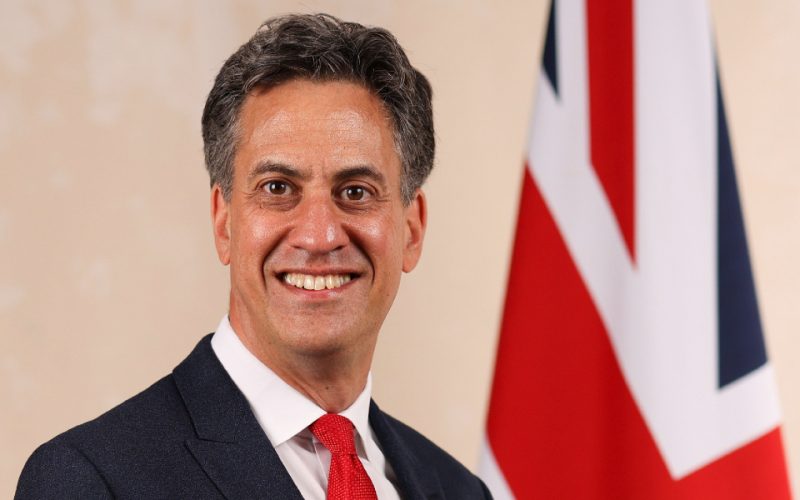Energy Secretary Ed Miliband reaffirmed the UK government’s commitment to net zero, calling on large companies to produce clear, detailed plans outlining how they will align with climate targets. The comments were made during London Climate Action Week, where Miliband addressed investors, scientists, and civil society groups.
“Cutting emissions and investing in the green economy puts Britain on the right path,” Miliband said, emphasising that the government’s mission is to transform the country into a “clean energy superpower” by accelerating the net-zero transition across all sectors of the economy.
The UK government is expected to introduce new rules requiring large businesses to publish transition plans aligned with the goal of limiting global warming to 1.5°C above pre-industrial levels. Miliband argued that doing so would not only support decarbonisation but also stimulate green growth and boost investor confidence.
The announcement comes amid rising political pressure over the costs associated with the net-zero transition, particularly with energy prices still elevated following Europe’s break from Russian energy supplies after the 2022 invasion of Ukraine. However, Miliband countered that high energy prices further underscore the importance of energy security through domestic renewable sources.
“Ours is a hard-headed determination to get off the roller coaster of fossil fuel markets with cheaper, clean, home-grown energy that we control,” he stated.
In addition to climate targets, the government is also working to establish London as a global hub for sustainable finance. Officials confirmed that new sustainability reporting standards are under consideration, requiring companies to disclose material information about climate-related financial risks and opportunities.
Independent climate advisers have warned that achieving net zero by 2050 will depend on the UK’s ability to lower electricity prices to make clean technologies—such as electric vehicles and heat pumps—more affordable. “By far the most important recommendation we have for the government is to reduce the cost of electricity,” said Piers Forster, interim chair of the Climate Change Committee, during a briefing on the group’s annual progress report.
The UK’s new industrial strategy, unveiled earlier this week, includes plans to invest over £30 billion annually by 2035 in clean technologies, including renewable energy and battery storage. Analysis from the Energy Transitions Commission and consultancy Systemiq found that 40% of the solutions needed for net zero are already cheaper than fossil fuels or will become so by 2030.
“There is now a real opportunity to help the remaining sectors reach their economic tipping point,” said Adair Turner, Chair of the Energy Transitions Commission. “With the right policies, all countries can share in the economic gains of a net-zero transition.”





















